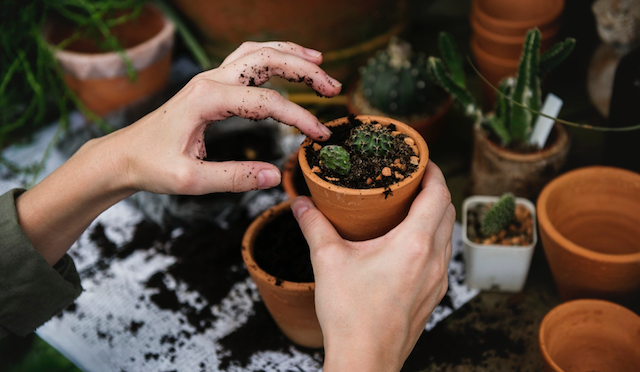7 DIY mosquito repellants
Homemade Mosquito Control

Mosquitoes, specifically female mosquitoes, bite when they are preparing to lay eggs. They need the protein to lay and have an uncanny ability to find us from our CO2 plumes. Repellants are exactly that – they repel the mosquito rather than making us “invisible” to them. Mosquitoes are put off by certain smells, particularly garlic, although we promise we do not suggest you slather yourself in garlic before leaving the house!

In all your recipes you will want to combine your essential oil with a carrier oil (Olive, Almond, or Grapeseed are good choices) at a 100 drop to 2 tablespoon ratio. To preserve your recipe, you will need an alcohol, which you can add at a ratio of ½ teaspoon to 2 Tablespoons of oil. Isopropyl alcohol or vodka are good options to use. You will also want to add in some witch hazel. If you have it lying around (and who doesn’t) a teaspoon of vegetable glycerin will help keep everything combined and reduce settling if you want to try using water instead of oil (we don’t find this to be as effective, especially in our heat and the resulting sweating). Now for the recipes!
Base:
2 tablespoons of oil
100 drops of essential oils
½ teaspoon of alcohol
½ teaspoon Witch Hazel
1. Herb garden: Add 50 drops of basil and 50 drops of rosemary essential oils
2. Citrus: 100 drops of lemon grass, or orange, or a combination of both
3. Geranium: 100 drops
4. Lavender: 100 drops
5. Mint: 100 drops
6. Eucalyptus: 100 drops
7. Citronella: 100 drops (caveat here, as we acknowledge that this may not be what you want to smell like!)
You can get inventive with your recipe but don’t lose sight of the fact that we are trying to repel mosquitoes, not delve into perfumery.
If you would like to keep some stand-by’s available for camping trips or to keep in your car, homemade options may not be a good idea. Sunlight and heat will degrade them. We recommend you visit the EPA website for more guidance on skin repellents. They also have an excellent search tool for finding the one that is right for you.
If your mosquito issue isn’t limited to camping trips, but instead closer to home in your back yard, we can help. We offer an all-natural service for your yard to keep those mosquitoes away using a combination of garlic (you won’t notice the smell, but the mosquitoes will!) rosemary and mint. Even our combination services rely on garlic around flowering plants, as we are very focused on protecting our pollinators and minimizing our impact in a yard. We want the mosquitoes out, along with their diseases, while keeping birds, butterflies and all other wildlife happy and content.
Finally, as we cannot harp on about it enough, remember that your number one source for mosquitoes is water. Just one teaspoon is enough water for them to breed in and managing that is a vital part of what we do. If you want to reduce the numbers in your yard clean your gutters, remove all containers and dump out water after it rains. If you want to learn more about our service don’t hesitate to give us a call. We are always happy to talk mosquito! 🦟
 Outside is fun again.
Outside is fun again.



 April 22nd, 1970 marks the birth of Earth Day. Millions of people gathered to protest the negative impacts of industrial development on our planet. Since that time, Earth Day has grown into a movement with participation by over 192 countries and over one billion people.
April 22nd, 1970 marks the birth of Earth Day. Millions of people gathered to protest the negative impacts of industrial development on our planet. Since that time, Earth Day has grown into a movement with participation by over 192 countries and over one billion people.  new customer serviced during
new customer serviced during  Arbor Day has its roots in Nebraska when Julius Morton made his way there from Detroit. He became the editor of Nebraska’s first Newspaper and disseminated information on agriculture and trees to his audience. Pioneers who read his paper started planting trees to help protect them from the wind and to provide building material for their homes. These days, Arbor Day is recognized in all 50 states and looks to the future, rather than the past. Arbor Day is about recognizing the vital role that trees play in our world and the needs of future generations.
Arbor Day has its roots in Nebraska when Julius Morton made his way there from Detroit. He became the editor of Nebraska’s first Newspaper and disseminated information on agriculture and trees to his audience. Pioneers who read his paper started planting trees to help protect them from the wind and to provide building material for their homes. These days, Arbor Day is recognized in all 50 states and looks to the future, rather than the past. Arbor Day is about recognizing the vital role that trees play in our world and the needs of future generations.





